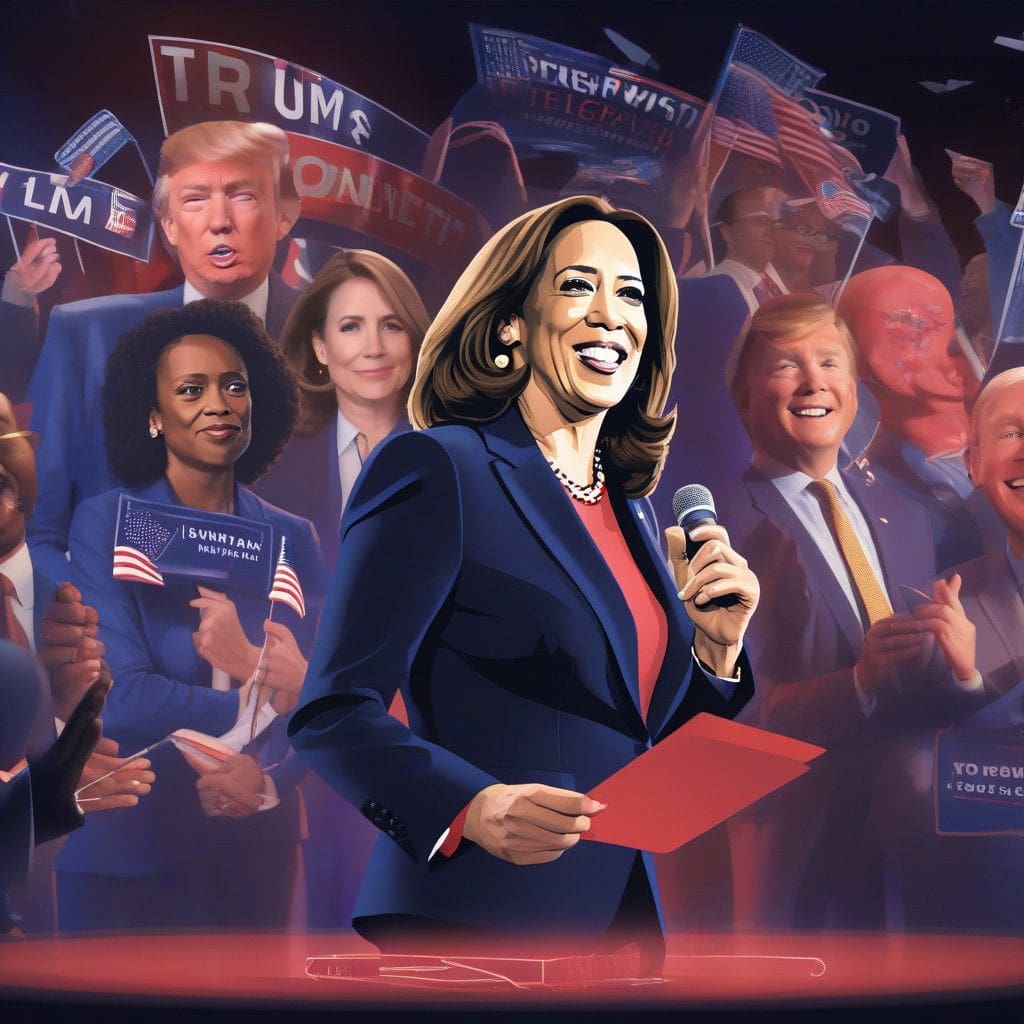As the 5 November US presidential election approaches, the spotlight is on the closely contested race between former President Donald Trump and current Vice President Kamala Harris. With polls indicating a tight competition, mobilizing voters becomes essential. In this uncertain political climate, support from prominent business leaders, particularly those in the tech industry, could significantly influence the election outcome.
Among the key figures advocating for Trump is Elon Musk, founder of X (formerly Twitter) and one of the wealthiest individuals in the world. His recent endorsement highlights the increasing importance of Big Tech, specifically the collective power of the so-called ‘Magnificent Seven’—the seven dominant American tech giants: Apple, Microsoft, Amazon, Nvidia, Meta Platforms, Tesla, and Alphabet. These companies not only shape consumer behavior but also play a pivotal role in shaping public policy and voter sentiments, particularly in the context of their financial contributions and influence over economic trends.
The Magnificent Seven
The term ‘Magnificent Seven’ derives from the classic 1960 Western film, which tells the story of a group of gunslingers banding together to protect a village. This concept is metaphorically applied to the current landscape of American technology firms, which have garnered recognition for their influence over the economy. As these giants dominate stock indices like the S&P 500 and NASDAQ, their backing could prove crucial for either Trump or Harris as the race intensifies.
Top executives from these major companies have gradually reached out to Trump, with figures such as Apple CEO Tim Cook and Amazon CEO Andy Jassy reportedly engaging in dialogue with him. This shift follows a frayed relationship marked by Trump’s criticisms of these tech companies, particularly during his presidency. Mark Zuckerberg’s recent comments praising Trump’s resilient response to an assassination attempt further indicate nuanced dynamics within the tech community concerning his candidacy. Musk’s fluctuating relationship with Trump also marks a significant transformation; two years prior, Musk criticized Trump, yet his current stance aligns closely with Trump’s policies, revealing the complex interdependencies between personal relationships and political affiliations.
Tech Support for Kamala Harris
In contrast, Kamala Harris’s campaign benefits from substantial backing by Silicon Valley’s elite, emphasizing her long-standing ties to the tech industry. Notable supporters include former Facebook CEO Sheryl Sandberg and billionaire philanthropist Melinda French Gates. Over 800 venture capitalists have signed a pledge of support for Harris, alongside significant financial contributions from tech employees at Alphabet, Amazon, and Microsoft, all of which ideally position her campaign favorably within the tech sector.
Harris’s ties to tech stretch back to her tenure as California’s attorney general and her role as a senator, fostering the belief among many tech leaders that she will maintain a more favorable stance than the current administration. However, in an environment where regulatory scrutiny of Big Tech has intensified, this sector must navigate its support carefully, balancing its financial backing while addressing possible uncertainties about Harris’s regulatory approach.
The Regulatory Landscape
The regulatory framework under the Biden administration has come under scrutiny, particularly focused on antitrust actions against major players like Apple and Google. These firms now face significant legal challenges, including hefty penalties imposed by the EU, prompting tech firms to reconsider their strategies in relation to future political leadership.
Trump’s past comments about government censorship and regulatory burdens highlight a contrasting approach to tech policy. He aims to reduce barriers that stifle innovation, capturing the attention of the tech sector, which could benefit from his vision of less oversight. Conversely, Harris’s record implies a commitment to regulating technology, particularly concerning consumer rights and data protection—factors that resonate with voters concerned about tech companies’ power.
Competing Visions for the Future
Ultimately, the forthcoming election encapsulates a broader ideological divide regarding the role of technology in American life. On one front, Trump portrays a pro-business environment that invites less government intervention, presenting a narrative that resonates with many companies seeking to expand without regulatory restraint. On the other hand, Harris champions a framework prioritizing consumer protection and a critical regulatory perspective aimed at ensuring fair practices and addressing issues such as misinformation and bias.
As technology continues to shape the economy and influence daily life, the policies of either candidate will significantly impact how Americans navigate the digital landscape, particularly in an era of rapid advancements in AI and digital platforms. Voters must consider these contrasting tech policies carefully as they prepare to cast their ballots, knowing that their choice will shape the direction of the industry and its relationship with the government for years to come.
The interconnection between technology and politics has never been more pronounced, and as the candidates sharpen their platforms, the tech industry’s support could ultimately tip the scales in this pivotal election.












